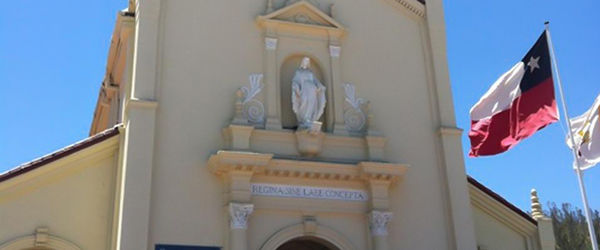Writer-director Gus Krieger is bucking a trend with his “Sherlock Through the Looking Glass.” The Great Detective is, today, “re-imagined” in movies as a short, shabby, Victorian eccentric while, on TV, he’s either a shambling, post-modern Los Angeles private eye, or an enigmatic thinking-machine in today’s London. Krieger, happily, remains closer to the Holmes Canon.
It’s 1885. A plague of madness scourging London byways evokes the whimsy of Lewis Carroll. Obvious clues lead to none other than Charles Lutwidge Dodgson, the gentle, elderly author of the Alice tales (a splendid performance by Hap Lawrence). Sherlock Holmes (vividly brought to life by Kevin Stidham) is called on to defend Dodgson from arrest by Inspectors Gregson and Lestrade of Scotland Yard (well-played, respectively, by Michael Hoag and Sean Faye).
It’s pleasantly reassuring to see Holmes, properly clad in frockcoat or purple dressing gown, rattling off details from his cases while putting the inspectors in their places. He even plays the violin.
Ably assisted by Dr. Watson (an admirably stalwart portrayal by Timothy Portnoy), Holmes begins his detection while looking into another matter, that of Lillian Childress (gracefully portrayed by Jennifer Bronstein), concerning her sister, Josephine (played with murderous delight by Dana DeRuyck). Eventually the detective is captured by the Jabberwock’s gang and forced to take a draught from a bottle labeled “Drink Me.”
That sets up the next act in which Holmes, the great logician, finds himself through the looking glass where logic is negligible. Bedeviled by rather malevolent versions of the Carroll manage including the March Hare, the Mad Hatter, the Red and White Queens, the White and Red Knights, Tweedledee and Tweedledum (doubled, as a wryly amusing in-joke, by Lestrade and Gregson), Holmes eventually breaks loose of a drug-induced haze but he’s not yet out the woods for he must still confront the real life Jabberwock.
Among other players in the ensemble, Ulka Mohanty is utterly charming as a street singer. Robert Beddall as the fruiterer and Andrew Graves as Bookseller Bart are thoroughly menacing, while Dylan Vigus as a constable is a commanding presence.
Paying close attention to the Holmes cases and the Carroll universe Krieger mercifully foregoes the plot contrivance of having Professor Moriarty peek out from disguise to take responsibility for the mayhem. More intriguingly he’s concocted a mystery with Holmes whisked off to what is generally regarded as a happy land of imaginative nonsense——and Krieger almost pulls it off.
The play is a rip-snorter but the solution remains murky. No one I spoke to when the lights came up understood the denouement and that’s not playing the game. Sherlock Holmes, of all detectives, has an obligation to explain himself clearly. “Crime is common, logic is rare,” Holmes remarks in one case. He must, therefore, build up solid enquiries, step by step, in order to reach incontrovertible truth.
Gus Krieger needs to work on that last, incontrovertible, step.
“Sherlock Through the Looking Glass” is a production of the Porters of Hellhouse. This is little theatre so don’t go to be overwhelmed by great sets or much in the way of costuming. Still, the Wonderland masks created by Jessica Pasternak are quite remarkable. Lighting and other technical production aspects are on the mark to aid the audience’s willing suspension of disbelief.
On a related note: As a Baker Street Irregular who’s expounded on the 60 cases of Sherlock Holmes in the pages of The Baker Street Journal, it is a pleasure to combine my Catholicism with my hobby. “Ronald Knox and Sherlock Holmes”(Gasogene Books, 2011) contains essays by the brilliant English convert.
Michael J. Crowe deserves much praise for writing a superb explanatory introduction and editing this wonderful collection of essays, the first of which appeared in 1911. Msgr. Knox, then an Anglican student at Oxford preparing for the ministry, presented a paper at a club entitled, “Studies in the Literature of Sherlock Holmes,” poking fun at exegetics, the “Higher Criticism” of his theological studies, by discussing Dr. Watson’s accounts as if they were Sacred Writ and proposing clever solutions to divergences and contradictions in them --- much as theologians still do with biblical conundrums.
This seminal work inspired writers on both sides of the Atlantic --- and now all over the world --- to write about “the Canon” of Holmes stories. A fine scholar, Knox translated the Bible for English Catholics in the 1940s. For relaxation he wrote several mysteries of his own. One, a pastiche of a Holmes case, “The Adventure of the First-Class Carriage,” appears in this volume, and it’s a winner. If you enjoy Holmes, Victorian crime and deduction don’t pass this up!
Final performances of “Sherlock Through the Looking Glass” are Dec. 20, 8 p.m., and Dec. 22, 2 p.m., at The Odyssey Theatre, 2055 S. Sepulveda Blvd., West Los Angeles. Information: (310) 477-2055 or www.odysseytheatre.com.
Sean M. Wright, a parishioner at Our Lady of Perpetual Help in Santa Clarita, presents workshops and enrichment courses in Catholic topics at parishes throughout the archdiocese. He replies to comments sent him at [email protected].

